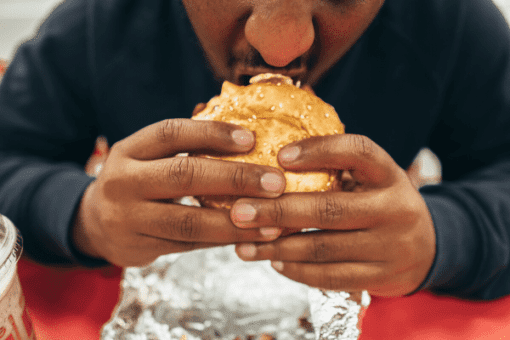 Eating Disorders in Horse Racing
Eating Disorders in Horse Racing
Our society often links eating disorders to a young, thin Caucasian middle class girl however this stereotype is far from the truth. Although eating disorders are more common than females than men, eating disorders are known to affect individuals of all ages, genders, race and social status. In fact statistics show that 10 million men in the United States are affected by eating disorders and many believe this number may be higher because men are less likely to recognize their symptoms and seek treatment than women due to the greater stigma associated with men and eating disorders. Men are the holders of masculinity meaning that they are conditioned from a young age to display a physical image associated with strength, power and success. Men are generally much bigger and taller than women and exert more power. Instead of the Barbie doll toy for girls, men are accustomed to playing with the muscular and bulky action figures and therefore this mindset of strength and masculinity is taught early on in childhood. There is a certain group of male athletes who must maintain a certain physique in order to be successful in their job; jockeys. Horse jockeys have a demanding job that requires very specific weight requirements and as a result many jockeys are diagnosed with eating disorders.
Strict weight requirements
Eating disorders in horse racing, the weight requirements for horse jockeys tend to range from 112 lbs. to 126 lbs. (the weight requirement is 126 lbs. for the Kentucky Derby). This includes about 7 lbs. of gear, so that an adult male must weigh less than 119 lbs. in order to participate in the Kentucky Derby. There is no height requirement, however, jockeys tend to be shorter due to this weight requirement. Although the specific statistics are unknown regarding how prevalent eating disorders are in this community, they are often hidden out of fear the jockey could lose his job and damage his reputation. Many famous horse jockeys including Richard Dunwoody, Steve Cauthen and Walter Swinburn, admitted to struggling with an eating disorder during their career in order to lose weight or prevent weight gain.
Eating disorder behaviors among jockeys
Almost all jockeys take long, hot baths and saunas on a daily basis in an attempt to maintain their weight. Additionally many use diuretics or laxatives, which are now banned by Jockey Club, horse racing’s governing body. Skipping meals, restricting food intake, self-induced vomiting, excessive exercise and unhealthy diets are common practices used by horse jockeys to avoid getting caught while maintaining their slim figure.
Danger of horse racing
Horse racing is a very dangerous sport and can result in broken bones, concussions, brain damage and even paralyses. Jockeys are often thrown off their horses and the horse has a potential of landing on a jockey. A horse outweighs a jockey by almost one thousand pounds and a jockey can risk death resulting from a fall, especially if they are weak due to an eating disorder such as anorexia nervosa. Eating disorders can result in weakened bones and as a result a direct impact on a weakened skeleton can result in shattered bones that otherwise would not have broken.
Eating disorders in other professions
Jockeys are not the only profession that is known to engage in eating disorders in order to keep their petite figure. Wrestlers, boxers, runners, figure skaters and ballet dancers are all known to be at high risk for an eating disorder due to the demand of their job and the important role their figure and body image has in their profession. Seeking help for an eating disorder may not only save your career but it can also save your life. Eating disorders, specifically anorexia nervosa, have the highest mortality rate out of any mental health disorder. Seeking professional help at an eating disorder treatment center can allow you to uncover the underlying triggers associated with the eating disorder while learning to develop healthy thoughts and coping skills to prevent future relapses.
We’re Here for You
If you are struggling or someone you know is struggling, we are here for you. Center for Discovery’s Treatment Centers specialize in treatment for eating disorders, mental health and dual diagnosis treatment with unique treatment programs for every individual to get them on their way to eating disorder recovery.
For more information, resources, or to consult with one of our specialists, call 855.399.1186.
Healing through Queerness: A Personal Story of Eating Disorder Recovery
